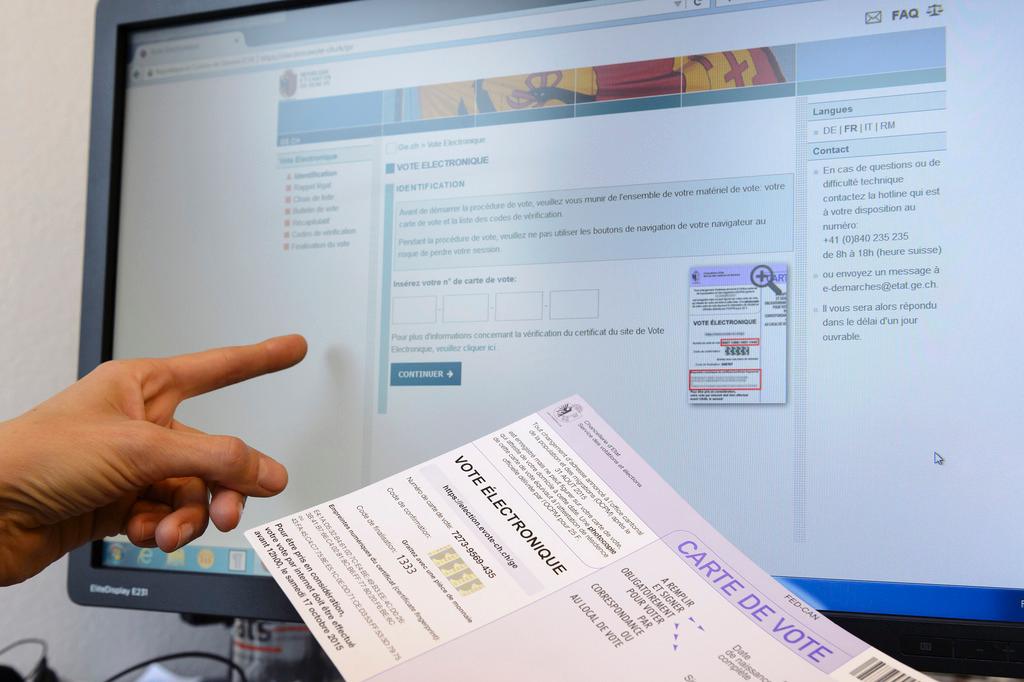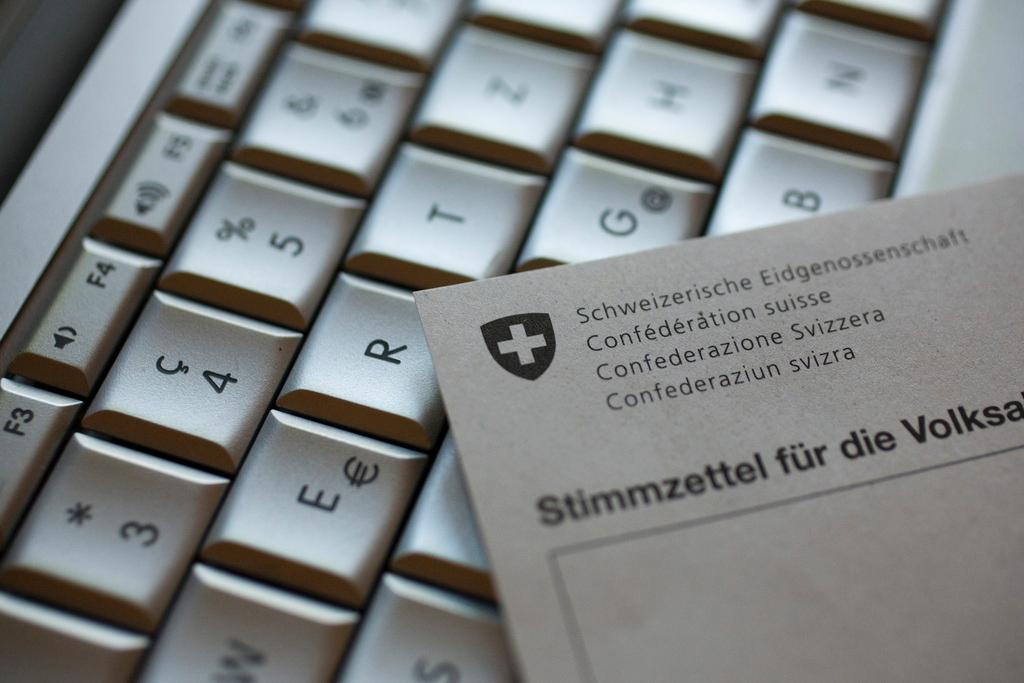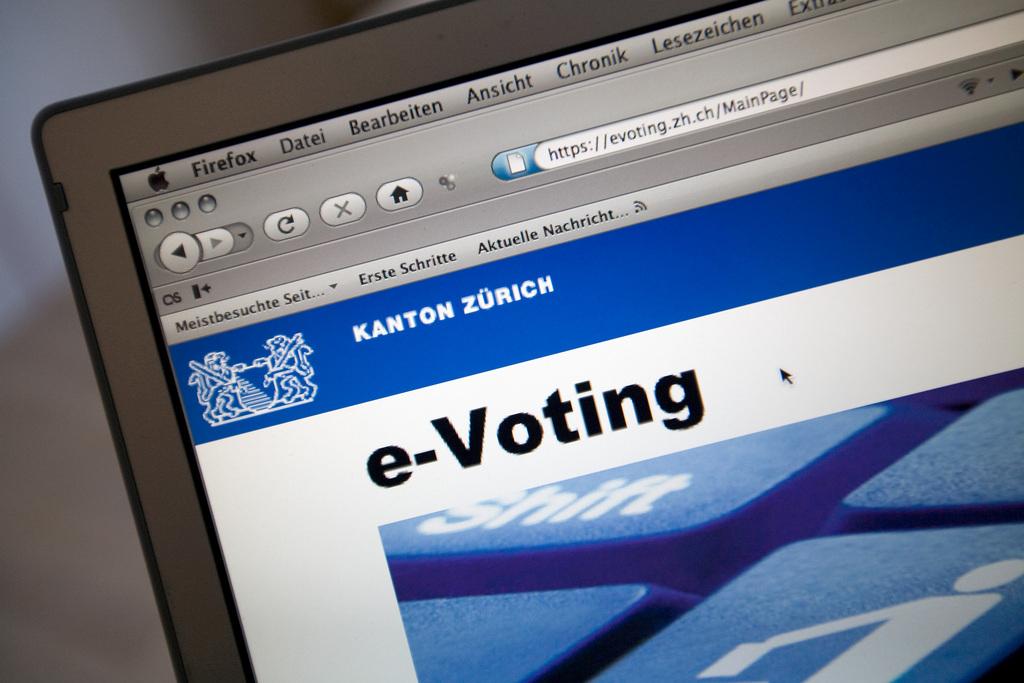The battle for the future of electronic voting

Government-owned Swiss Post has become the latest player to enter the electronic voting market, announcing that it will work with Neuchâtel to offer an e-voting system next year. But its partnership with Spanish firm Scytl has some questioning whether the use of foreign voting systems could leave the Swiss exposed to security concerns.
The move by Swiss Post follows the government’s decision, on security grounds, to reject the use by a consortium of nine cantons of a voting system developed by American company Unisys during the October 18 parliamentary elections.
Since the first trials at electronic voting in 2003, Swiss cantons have been wrestling with the development of secure e-voting systems. To date, canton Geneva has been the most successful in rolling out an approved system, due in large part to the platform being 100% publicly funded and locally developed. The model has so far been adopted by three other cantons: Lucerne, Basel City and Bern.
Aside from the failed attempt by the consortium of nine cantons to introduce the use of an American e-voting system, Neuchâtel has been the only other canton to enter the fray. In partnership with Syctl, a global leader in the field, it has developed a unique online voting platform that offers the possibility of voting directly from a computer keyboard. Having eyed the market for some time, it is this system Swiss Post is banking on to provide its entry into the world of e-voting.
Security issues
The Syctl/Neuchâtel platform, announced in September, is expected to provide a level of security that could potentially allow all citizens to participate in elections and other votes online.
“We have conceived a second generation system that responds 100% to the security demands required by the government,” says Claudia Pletscher, head of innovation and development at Swiss Post. “Individual and universal verification is guaranteed. This means that voters and authorities can, at any moment, check that the correct vote has been registered. It’s a major new development.”
The new system is potentially a game changer, but the arrival of Swiss Post into the e-voting arena has caused a stir. Christophe Darbellay, leader of the centrist Christian Democratic Party, warns that one must “keep a watchful, even suspicious eye” on the postal giant’s moves.
“Swiss Post is a Swiss company owned by the government and therefore offers certain guarantees,” he said. “It is, however, incomprehensible that it had chosen a Spanish company, with direct links to the US Department of Defence, as its partner. The problems encountered by the consortium of nine cantons [which worked with American company Unisys] should have served as a warning.”
“Absurd, unnecessary and costly”
Darbellay fears that secrecy at the ballot box, one of the mainstays of any democracy, could in this case fall into the hands of another country or foreign private company with sinister intentions. Following security revelations made by US National Security Agency (NSA) whistle-blower Edward Snowden, Darbellay put forward a motion in parliament in May demanding that “electronic voting in Switzerland be provided by a system where its intellectual property rights are exclusively held by Swiss public authorities”.
If his motion passes, it would put an end to Swiss Post’s ambitions. Only Geneva is in a position to fulfil such requirements.
“It is the only system today which is satisfactory,” says Darbellay, who adds that it would be “absurd, unnecessary and costly” to develop other e-voting systems.
Leftwing Social Democratic Party president Christian Levrat, who headed an inquiry on the issue, supports Darbellay’s motion.
The government, however, recommends rejecting it, even though it “shares the same goal” as Darbellay. The government says the use of several e-voting systems “favours healthy competition”and allows for the “necessary experience” to be gained.
To which Darbellay argues: “Unfortunately, the government is a prisoner of the dogma of economic competition.”
National sovereignty
Meanwhile in Geneva, cantonal chancellor Anja Wyden Guelpa is also wary of Swiss Post, which she says “has clearly demonstrated its intention to make money out of civil rights”.
“Our philosophy is radically different to that of Swiss Post. Votes and elections are state duties and an issue of national sovereignty. The idea of asking a foreign company to count paper ballots would never be allowed. The same should apply to electronic voting.”
As such, the battle between Swiss Post and Geneva to persuade the other cantons about the benefits of their own e-voting systems is underway. But according to Wyden Guelpa, it is not a fair competition.
“Unlike Swiss Post or Scytl, we don’t have marketing and communications teams dedicated to this project, and our aim is not to offer electronic voting to the 26 Swiss cantons,” she says. “But nonetheless a certain critical mass would be needed to cover costs associated with security. In terms of our capacity, we could take on three new cantons each year.”
Geneva therefore would not only offer an e-voting system, but would also manage it on behalf of affiliated cantons. While several cantons, including Valais, have already expressed interest in Geneva’s model, Swiss Post has not given up and is expected to soon announce new partnerships.
“There is a lot of interest in our product from the cantons,” says Pletscher.
During legislative elections on October 18, only four cantons offered their citizens living abroad the possibility to cast votes electronically. This involved 34,000 out of 142,000 registered Swiss expat voters.
“The introduction of e-voting is taking a lot of time which is regretful. But because of this, we have achieved a high degree of security,” says Ariane Rustichelli, deputy director of the Organisation of the Swiss AbroadExternal link (OSA).
Also for the first time, 96,000 voters in cantons Geneva and Neuchâtel, representing some 30% of the electorate, had the opportunity to vote electronically in the federal elections.
Adapted from French by Sophie Douez

In compliance with the JTI standards
More: SWI swissinfo.ch certified by the Journalism Trust Initiative




You can find an overview of ongoing debates with our journalists here . Please join us!
If you want to start a conversation about a topic raised in this article or want to report factual errors, email us at english@swissinfo.ch.